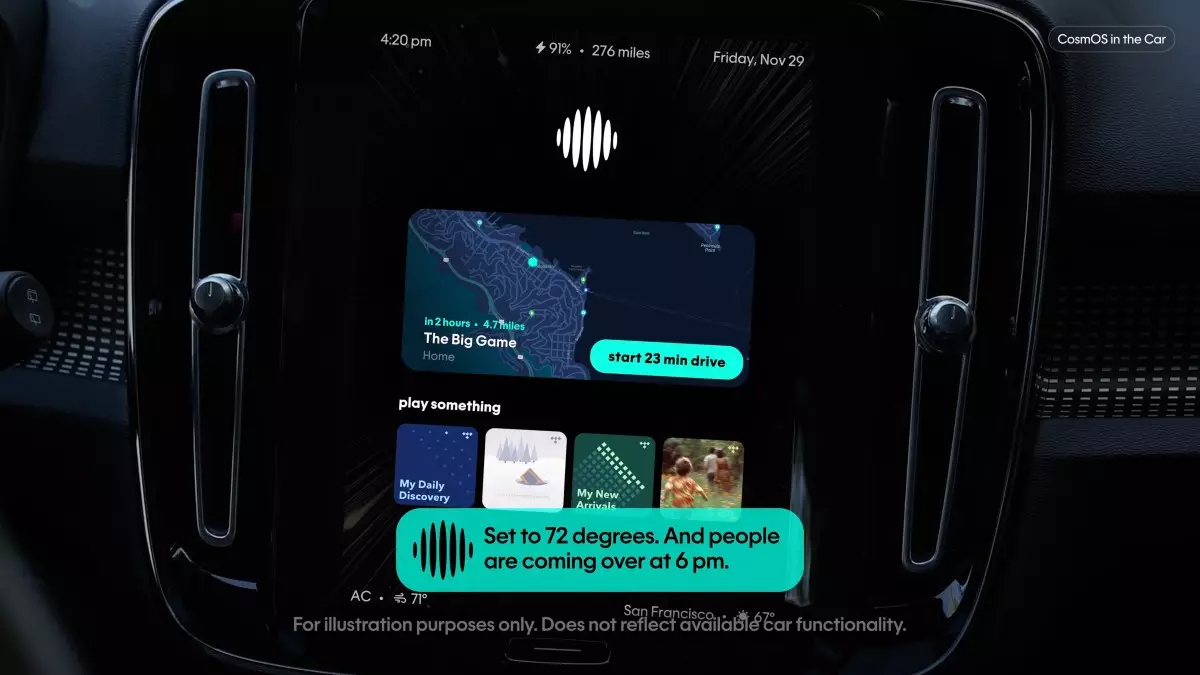In the rapidly evolving landscape of technology, the introduction of innovative devices often carves out new niches within the ecosystem. Humane, a San Francisco-based tech startup, has taken significant steps toward redefining human-computer interaction through the release of its Ai Pin—an AI-infused gadget intended to complement the ubiquitous smartphone. However, despite its ambitious vision, Humane faces the reality of underwhelming sales and negative reviews, prompting inquiries regarding its longevity and the strategic direction post-Ai Pin.
Initially touted as a breakthrough in personal technology, the Ai Pin has struggled to gain traction. Originally priced at $700, the device has now seen its price slashed to $500 amid reports that returns on the product have begun to outpace new sales. This troubling trend raises critical questions about user adoption and satisfaction. The overwhelming feedback suggests that while the idea of a dedicated AI device is appealing, the execution has left much to be desired. The implication is clear: consumers are not easily swayed by the allure of novel technology if it fails to deliver tangible benefits in their everyday lives.
In contrast to its competitor devices, which have managed to secure their footing, the Ai Pin seems to have fallen short, creating a sense of uncertainty around the company’s future. Despite securing over $230 million in funding, Humane’s strategic roadmap remains ambiguous as it pivots from a hardware-centric approach to an operating system that could potentially redefine how users interact with technology.
In response to its challenges with the Ai Pin, Humane has unveiled CosmOS, a new operating system designed to enhance various tech devices in daily life. This shift marks a significant pivot in the company’s strategy, as they attempt to leverage their technological capabilities beyond just a single product. In promotional demonstrations, CosmOS showcased its functionality across a range of devices, including smart speakers, TVs, cars, and smartphones, suggesting a potential for seamless integration into existing ecosystems.
What sets CosmOS apart is its promise of advanced interaction capabilities. The OS is crafted to facilitate complex inquiries and operate efficiently across multiple applications and services. As per the promotional material, CosmOS aims to serve as an “intelligent conductor,” orchestrating myriad AI capabilities into a cohesive user experience. This visionary perspective suggests a future where AI could transcend simple responses and develop a more nuanced understanding of context—akin to what would be expected from a mature virtual assistant.
Nevertheless, one must approach Humane’s promises with a degree of skepticism. The demo video, while slick and compelling, often blurs the line between potential and practicality. Instances where the system is purportedly used—like asking about meal recommendations or sports statistics—are glossed over with disclaimers indicating that certain displayed functionalities are merely hypotheticals. The blurred logos of car brands and devices in use serve as a reminder that while the vision is enticing, the implementation is yet unproven.
For many, this raises concerns about whether Humane is genuinely developing an innovative product or merely crafting an elaborate marketing campaign to attract potential buyers—or even acquirers. The semblance of CosmOS as a product is undercut by the persistent theme of insufficient real-world application. Only time and thorough testing will reveal if CosmOS can indeed deliver on its promises or if it will remain an elusive vision.
The Future of Humane
As part of its longer-term strategy, Humane aims to enable third-party developers to create integrations within the CosmOS framework, which could position it as a platform for broader innovation. However, the question remains whether this initiative can regain consumer confidence after the missteps of the Ai Pin. The tech world will be watching closely to see if Humane can transform these challenges into opportunities.
Humane’s venture into operating systems could signal a shift in its business model from hardware dependence to software-centric solutions. This pivot may indeed provide the company with a lifeline, but it must back its visionary claims with functional products that resonate with consumers. As the curtain lifts on this new chapter, it leaves us with a mixture of hope and cautious optimism about what the future holds for Humane and its CosmOS platform.

